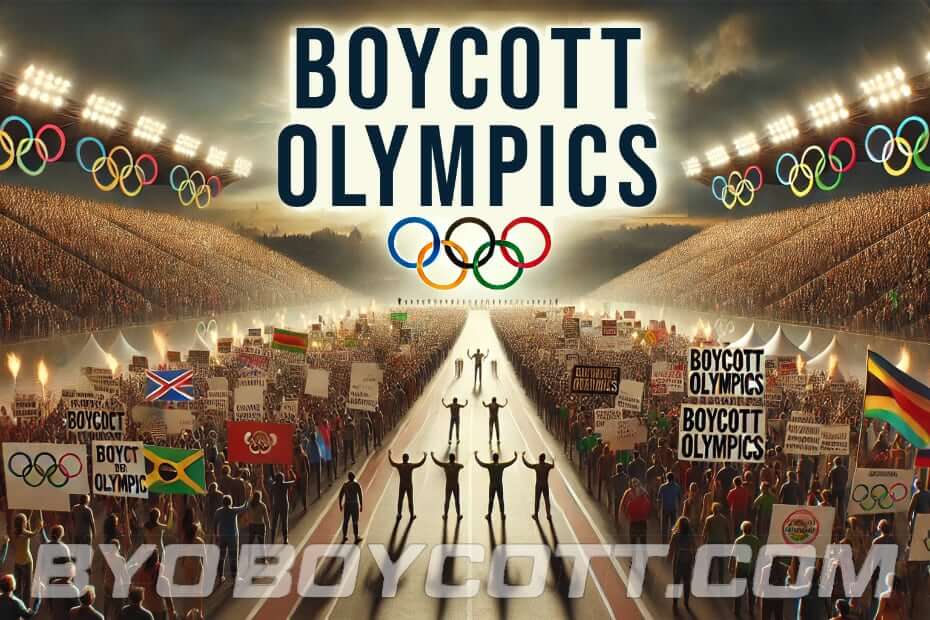The opening ceremony of the Paris Olympic Games in 2024 sparked controversy due to its depiction of the Last Supper, one of the most revered scenes in Christianity. The ceremony featured a performance by drag queens and other actors who stood in poses inverted from the painting, which some viewers found offensive and blasphemous. This depiction was set on a bridge over the Seine River that overlooks the Eiffel Tower.
The event drew condemnation from various groups, including American leaders, world leaders, Christian groups, and athletes, who found the depiction disrespectful towards Christianity. The controversy highlights the delicate balance between governmental neutrality in religious matters and governmental recognition and accommodation of the role religion plays in the lives of many people.
Some individuals and groups are boycotting the Olympics over the controversial “Last Supper” scene in the Paris 2024 opening ceremony.
- Conservative Backlash: The scene, featuring drag queens and other performers in a configuration reminiscent of Leonardo da Vinci’s “The Last Supper,” has been criticized by religious conservatives and politicians as a mockery of Christianity.
- Calls for Boycott: Critics argue that the scene disrespects Christian beliefs and have called for a boycott of the Olympics in response. Social media influencer Andrew Tate and his brother Tristan Tate were part of a protest against the Olympics in Bucharest, Romania, criticizing the opening ceremony and calling on athletes to boycott.
- Organizer’s Response: Paris Olympics organizers have apologized for any offense caused by the tableau, stating that there was never an intention to show disrespect to any religious group. The artistic director of the opening ceremony, Thomas Jolly, said the scene was meant to celebrate diversity and pay tribute to feasting and French gastronomy.
- Controversy and Criticism: The controversy has sparked a debate about the intersection of religion, art, and sports, with some arguing that the scene was an inappropriate choice for an international event like the Olympics.
Every Major Sponsor will have commercials at some time during the games. The easiest way to boycott is don’t give the channels the viewership to make it profitable.
Here is a list of major sponsors if you choose to do more:
- Procter and Gamble
- Panasonic
- Toyota
- Visa
- Coca-Cola
- Bridgestone
- Airbnb
C Spire: A U.S. telecommunications company, C Spire, announced it was pulling its advertising from the Olympics in response to the opening ceremony’s “mockery of the Last Supper.”
Other people are boycotting the Olympics for several reasons, including:
- Political Reasons: Some countries have boycotted the Olympics in the past to protest against certain political actions or policies of the host country. For example, in 1980, the United States led a boycott of the Moscow Olympics to protest the Soviet invasion of Afghanistan.
- Human Rights Concerns: Boycotts have also been driven by concerns over human rights abuses in the host country. In 2021, the United States announced a diplomatic boycott of the Beijing Winter Olympics, citing the Chinese government’s human rights abuses against Uyghurs and other Muslims in the Xinjiang region.
- Controversies Surrounding the Games: Some boycotts are a response to controversies or perceived issues with the Olympic Games themselves. For instance, the 1976 Montreal Olympics saw about 30 mostly African nations boycotting due to the participation of New Zealand, which had defied an international sports embargo against South Africa.
- Disputes Over Athlete Eligibility: Boycotts can also occur over disputes regarding the eligibility of athletes. An example is the boycott of the 1956 Melbourne Olympics by Egypt, Iraq, and Lebanon, in protest of the Suez Crisis, and by the Netherlands, Spain, and Switzerland, in response to the Soviet invasion of Hungary.
- Financial and Organizational Issues: Some boycotts have been driven by concerns over the financial and organizational aspects of the Olympics. The 1984 Los Angeles Olympics, for instance, saw a boycott by the Soviet Union and 13 other Eastern Bloc countries in retaliation for the U.S.-led boycott of the Moscow Games four years earlier.
